By Jessica Williams
This is very hard, very personal, and very important, and I have wanted to say something on the topic for a long time. I want to thank Evolutionary Parenting for giving me the opportunity to address it. Recently she reviewed a book about a child sexual abuse survivor and the title, It’s Okay to Tell, says it all.
Sexual abuse is a scary topic, it’s one no parent wants to contemplate, much less talk about. The very notion that someone could do that to their child is beyond enraging. It makes the blood boil; it turns doves into lions, and makes even the meekest parent start thinking about torture methodology. And as well it should. But we need to consider something else too: how our children comprehend our rage.
I’m an abuse survivor, and like the vast majority of survivors my abusers were not creepy old men hiding under rocks. Parents think of ‘child molester’ and we see the monster. We see the boogeyman of our nightmares luring our babies into dark vans. In our minds we turn the perpetrator into the evil he does. And we lash out, trying to comfort us or our children with promises:
“I’d kill anyone who ever touched you”
“I’d beat anyone who hurts you until the cops dragged me off.”
“Anyone ever does that to you, I’ll kill ’em.”
I’ve heard the like from so many adults I couldn’t possibly count them, even from non-parents. We’re trying to be reassuring, and in our minds we’re telling our children that no one would get away with hurting them. That we would protect them. But let me tell you something, as an abuse survivor I cringe every time I hear such statements because we are reassuring only ourselves, at the expense of the victims—our children.
Do those dirty old men hiding under rocks luring kids to the back of blacked out vans exist? Well, unfortunately. But your child has a better chance of being hit by lightening than running into one. Molesters and rapists of children are playmates, neighborhood teens, friends of the family, trusted adults, and family members almost exclusively.
Now this isn’t my way of telling you to lock your kids up in a safe and never let anyone be alone with them. Abuse happens, it’s horrible, but if you truly want to reduce that chance to nothing, something else won’t happen either, childhood, and to lose childhood is quite a bit worse. I’ve never known an abuse survivor who wished their parents had locked them away from all possible avenues of danger, so please do not take this reminder as fear-mongering.
What it is, is a much needed wake up call.
That monster you just threatened to kill or beat or castrate is the same person you laugh with at the bar-b-que, is the same playmate that your child happily engages in tag, and the same coach, teacher, referee, or moderator that your child is told to trust and obey.
Abuse is horrible. It robs a child of more than just physical innocence, but the abuse is also very much beyond them cognitively. Most children don’t know what’s happening. They are scared. They are in pain. They know it’s wrong, but this is nearly always someone they like. And they very likely have been convinced they are equal partners in the transgression. Children are terrified, so very often, to tell because they think they will get in trouble, after all they ‘let’ it happen.
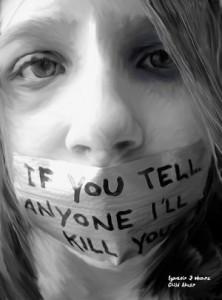 Trust me, no matter how coerced or forced the silence, the second a child doesn’t fight and scream and bring the neighborhood running they are convinced they ‘let’ it happen, and everyone will be just as angry at them as at the abuser. They don’t want to be responsible for their friend being killed or even just getting in trouble. They don’t want to see your friend turned into your mortal enemy because of their weakness.
Trust me, no matter how coerced or forced the silence, the second a child doesn’t fight and scream and bring the neighborhood running they are convinced they ‘let’ it happen, and everyone will be just as angry at them as at the abuser. They don’t want to be responsible for their friend being killed or even just getting in trouble. They don’t want to see your friend turned into your mortal enemy because of their weakness.
While age-peers and those somewhat older may stumble onto this built-in protection by accident, you can be assured adult abusers do everything they can to foster it. They tell their victims that if anyone knew it would ruin their life, that they would be thrown in jail, that their children would lose their father. Imagine for a moment what that looks like through a child’s eyes. Here is your friend’s father (for example) whose house you play at, whose dinners your whole family attends, who lets you play with the cool toys, and then occasionally he does something that makes you sick to your stomach and scares and hurts and you know is wrong but he said everyone does it and it’s part of growing up (a pretty common lie among abusers). He says if you tell anyone they will be angry at you. And meanwhile your dad, after reading an article in the paper or seeing something on TV has proclaimed that he would kill anyone who did something like that to you.
Could you speak up? You believe your parent after all, which means that if you tell your friend’s dad will die, a family that you like will be broken up, and it will all be your fault. The longer it goes on the stronger the compulsion against telling becomes; after all you haven’t told anyone yet, they won’t believe you that it wasn’t your fault, because you would have told. And maybe the abuse stops, you move, they move, you grow too old. And now you can’t ever tell. Because you didn’t then. Because now it’s even worse to contemplate your parents doing violence upon your abuser, after all, it’s over and you just want it to go away. It doesn’t make sense, which itself lends itself to continued silence, because as you mature and begin to comprehend things you didn’t as a child, you can’t understand why you didn’t tell, so it just makes you feel more complicit.
We should all want this horror to stop, for not another child to ever go through it. We should seek that even though, rationally, we know it will never happen. But what can happen is better reporting of the crime and better acceptance of the victim.
As adults, however, we need to bite back our horror and rage. We need our children to feel comfortable approaching us. When the abuser is most likely a friend that means we need to stop verbally denigrating the perpetrators (at least where children can hear). I don’t mean say it’s good or okay, I mean focus on the act, not the person. We see a monster, but the child doesn’t. The child sees a monstrous act. If we want them to tell us about it, we need to understand that’s two separate things to kids.
It’s horribly important to talk to your kids in an age appropriate manner, about bad touches and bad secrets, but that’s not enough. My parents did that, and did it very well. In fact I’ve yet to run into an abuse victim (whose abuser wasn’t their parents) who didn’t feel like their parents did that. Most victims don’t tell because they are afraid, afraid of the consequences of telling. We need to let our children know they can have a ‘free pass’ time (or whatever you want to call it) when they can tell us anything and they won’t get in trouble for it. And, perhaps even more important, we need to ensure our kids never hear us threaten or denigrate abusers or put into their minds that only monsters abuse kids. Because they will believe us, and then they won’t tell us when the kindly neighbor or best friend does something horrible because to a confused and frightened kid, their abuser is almost never a monster.
Please, from someone who was silent for more than ten years, stop telling kids you’ll do harm to their abusers. The feeling is fine, and we should express it in adult company. It can do a lot of emotional good to adults to contemplate what an abuser deserves. But it doesn’t help a frightened child to come forward one bit, and as far as our children are concerned we should be more interested in stopping it than punishing it.
Thank you for considering my words.

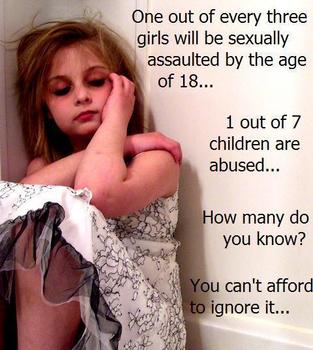
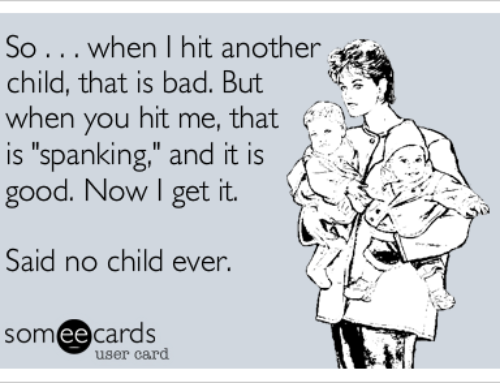
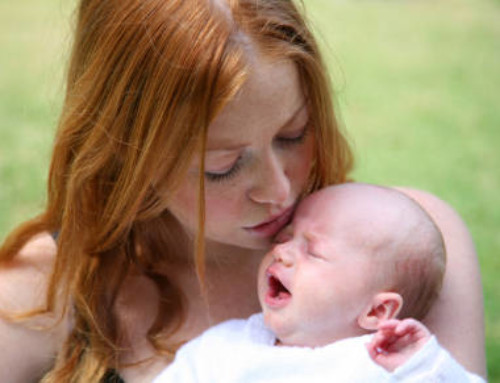
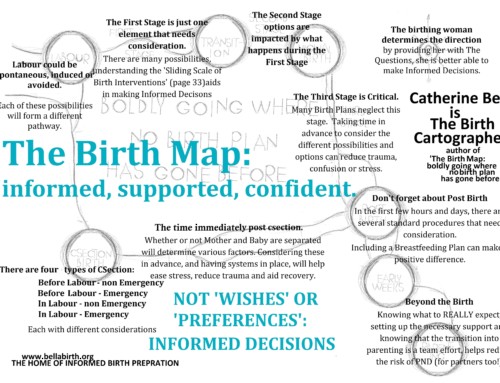
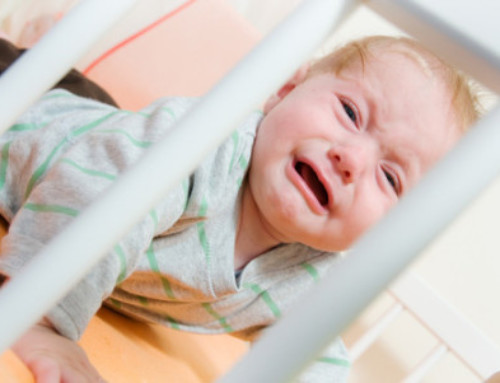
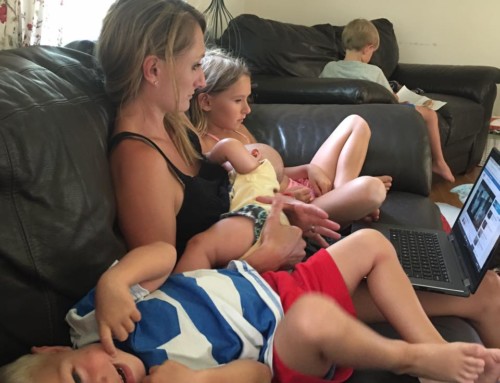
As a survivor or rape who felt I could not tell my parents as a direct result of comments my mother had made, thank you for this post. It’s so important to get this message out.
What a brilliantly well written article. Well done! I realise that this is a sensitive issue and so it isn’t surprising you’ve written this anonymously, but I hope you get the chance to write under your own name and be recognised for your work. :0)
Thank you, both to Tracy, the commenters both here and on facebook, and the readers. Thank you for understanding the anon nature of the post. Usually I don’t write under a guise, but I do direct people to this site and it stuck me as a really poor way for a relative I haven’t told yet to find out because they stumble across a survivor’s article by me. Obviously I feel strongly about this and I’m very pleased that this is getting out there. I really wish this was something with wider recognition, and I hope this helps.
Wow! What an amazing article! I am SO sorry that you had to go through all that, but I am very proud of you for putting this out there. You are obviously an amazing, strong, determined person and we are all blessed to have you putting your story out there to raise awareness. It’s such an amazing, brave thing to do and I know it will help a lot of people. Even though I won’t be a parent for years (I’m only nineteen), I love children and can’t wait to raise my own someday. I am constantly looking at things to help prepare myself for parenthood so I can be the best mother I can possibly be. Obviously, I am very against sexual abuse of any type and whenever we hear of such stories, my boyfriend and I always launch into the “What I would do if someone touched my child” conversation. It’s very interesting to hear why these statements are not good to use around a child, and why. I think so often people forget how much different a child’s thought process is from our own. I don’t think I would have ever realized that a child most likely isn’t going to view an abuser (who is close to the family) as a monster. I think this article should be a must read for all parents. Thank you again for sharing your story and being a strong, amazing person!
thank you so much for sharing! i’ve worked really hard to teach my 4 year old know that no one is allowed to touch her without her permission and that if anyone ever tries to touch her or even asks to see her privates, she is to immediately tell them “NO!” and then tell Mommy or another adult – your post is a great reminder to add that i will NEVER be mad at her for telling
i always remember how Oprah says that abusers seduce their victims – it’s such an important thing to remember how easily victims can be convinced that it’s their fault – thank you so much for the reminder!
Seriously sobering, and an aspect I hadn’t taken time to contemplate. Thank you.
I agree with you 100%. My older sister was aboused by a close family friend. She wasn’t sure she sould tell our parents because she didn’t want him to get in trouble. She told me instead. I went to my parents who reassured my sister that it wasn’t her fault and that they would never let her be hurt again. The abuse was then prosecuted to the full extent of the law. Our parents always let us know that it was not our fault and never freaked out about revenge or anything else in front of us. I now have children of my own and my youngest son was recently touvhed by someone who is only a bit older. He didn’t even realize that the abuse would get in trouble when he told me because I had learned well from my parents. He just didn’t like what had happened and wanted me to talk to the older child. I asked my parents how they had not lost their minds because I wanted to. Thankfully I was able to keep my cool and resolve the situation without my son feeling that he had done anything wrong. I appreciate this article so much because so many people need yo be aware of. I am sorry for what you went through and admire you for speaking out.
Thank you for sharing your clear thinking. I like the idea of children being able to tell something where a parent promises not to react in anger where the child is aware of it. Venting is for confidential sessions so that we can process our emotions and then think more clearly.
Years ago I heard a pedophile on the radio say that the best preventive protection is for parents and teachers and other caregivers in positions of authority is to allow children to say “no”. When I heard that I realized that some of the power struggles that we are tempted to engage in with children have to do with our whims and our wants. I am finding with my grandchildren that if I announce late in the day that I am feeling tired, and that I have little patience, they treat me differently. I do let them question my directions and stop to reason when I hear a “no”. I know this os only a small part of it. I just wonder what you think.
I do think it’s very important to respect children’s ability to say ‘no’, but of course it’s a balancing act because there are certainly times when telling a parent ‘no’ isn’t an option. I think the most important part along those lines is never to ignore a ‘no’ when in reference to affection or touch. Everyone wants to hug and kiss kids, it’s natural and normal, but if junior shakes his head no when auntie wants a kiss I think it’s important to wait and not force the issue, kids should know there are certain things they are allowed to say no to, ‘go pick up your toys’ might not be one of them but ‘can grandpa have a hug?’ Should be, in my opinion.
Also, I applaude you advizing them when the rules have changed. Telling your grandkids ‘grandma’s patience is shot, no nonsense tonight’ is very wonderful, it let’s them have an expectation and act appropriately. 🙂
Thank you so much for mentioning this part about allowing our children to say “no”. I can speak from experience that I didn’t know I could say no, or that I could ask for what I wanted or needed. This is key!
I truly commend your honesty and rational mind here, and am grateful for your courage. As someone who has had thousands of kids under my care over a career, the thought that an adult would abuse a child makes me shudder.
But what makes me shudder more is that the very beauty of a child (their love for others) could be such a double edged sword. I have worked with kids after they’ve suffered from abuse, and the effects are devastating. ANYTHING that helps bring awareness to solutions for this is much needed.
Thank you.
Thank you so very much for writing this! Now that I have a daughter this scares the crap out of me, but it’s comforting that there’s something proactive that we can do.
A wonderful article- though I’d like to bring up one more facet. I didn’t tell my parent because I thought my dad would kill him(a neighbor kid) and my dad would go to jail. I wasn’t so much concerned about the abuser as I was my dad going to jail. Might have been 7yrs old, not sure.
Thank you for creating this article. As someone who was abused as a child by a friend’s dad, I can certainly agree with the fear of getting in trouble and of getting someone else in trouble. My abuser was a decent father to his children, and I didn’t want my friend to lose her father when I myself had an absent one and I knew that pain. I kept quiet for years until another friend’s parent noticed something weird was going on and reported it to CPS. I was still terrified, and though I do not regret telling the truth, finally, I do wish I had of done so earlier. And we also need to address the stigma that goes along with this. Quite a few of my peers loathed me, yes me, because they claimed I asked for it. No one asks for that. I still do not like going to the town I was raised in because I still feel the prejudice. Not only do we need to teach children that they can tell us, their parents, about these things without fear of retribution, but we also need to teach our children that it is not a child’s fault when this happens. Hopefully in doing so, if it should happen to a classmate they will be more accepting of the child.
Totally agree and thank you for this post. It’s so important to know how a parents anger can affect a child being able to speak up. I was abused by a family member, and consequently many other family members have excluded me. Even though one of them whitnessed the abuse on occasion she has shunned me for asking for it, I was 12. I didn’t want to tell my parents as the family was close. I finally did, but the family is now divided into 2 camps: his and “mine” and I’m 30 now! Because of this accusatory attitude towards me I still have trouble believing he was a monster, especially when I am told about his daughter, who was born the day after mine. Abuse is horrible and devastating, as parents we must do anything we can to ensure our children know well believe them and stand by them no matter what. Thanks again for posting this.
I am so sorry your family has done that to do. I always wonder how people can behave that way – is it denial? Is it shooting the messenger? Either way it’s wrong and I hope at some point in your future your family is able to come together to support you.
This is a good post, well said. I would take it one step further, although this may be hard to accept: Fostering the attitude of wanting to exterminate a horrific monster, among adults, or even just in your own heart, may not be healthy either.
We all want to believe in monsters. That way, we can remain in denial, separating our own humanity from the beast that would harm our child. Only monsters do this, we think, they are just good at disguising themselves and blending in. If we can only find out who they are, we can eradicate them.
However, very few human beings are actually born as monsters. The vast majority of child rapists and abusers, in fact, have had this done to them. Once upon a time, that “monster” was an innocent little child, too. Had you been there, and learned what some adult was doing to that child, you would have felt the same outrage on his behalf, wanted to kill the adult responsible. Subsequently, the child victim you know today, could grow up to be that “monster” too. That is hard to think about, but logically, it is true.
I certainly do not mean to suggest that perpetrators should not be punished, or should be given sympathy or understanding. When necessary they should be locked away forever, so they can never harm another child.
I just feel that it is vital to understand that, no matter how vile someone is, or how horrific his crimes, he is still a human being – and to try to separate him from our own humanity is a mistake, one that can cost us, the awful price of denial.
Perhaps it is because I have a history of abuse, but I have always found this line of reasoning abhorant. The victim who becomes an (adult) abuser, to my eyes, is far more dispicable than someone who was not abused. Yes, I absolutely have total empathy and sympathy for them as innocent abuse victims, and would want to see their abusers brought to justice. But to then, in full knowledge of what abuse does to the victim, turn around and choose to perpetuate that abuse is the worst sort of offense possible. it is an offense with full forethought and understanding, ultimate knowledge of *exactly* the damage they are doing. Those people *are* monsters. And I in no way see that as a separation of his humanity, for it takes humanity to be a monster. His humanity is what makes him responsible and held accountable. To excuse an adult’s choice by a childhood trauma is what distances them from humanity and is the epitamy of denial. Denial that they, like all humans, are responsible for their actions and should be held responsible for behaving in a monstrous manner.
In children this is an excuse, the 6 year old abuse victim who in turn acts out his abuse on another child is not a monster, but rather a scared child who is doing what children do, mimic the behavior of the adults around them. To classify them as abusers is dangerously hypocritical and certainly the apex of denial. But a 20, 30, or 50 year old who tries to use ‘it happened to me’ as an excuse, even as an explanation, is doing nothing more than playing on societies horror at the act. Surely something so monstrous from this otherwise nice person can’t possibly be *their* fault, *they* can’t be a monster, they are just repeating the cycle of abuse. Bull.
They are monsters hiding behind a false facade who choose in full understanding of the damage they would be doing to terrorize an innocent child for their own ends, and they get not an ounce of sympathy from me and would be punished even more severely for their willful and wanton act of knowledge if I had a say in it.
My experience with my abusers was different. They truly did not understand the damage done to them. I am not sure they even knew it was considered abuse. I only learned what had happened to them by putting the pieces together of their stories, and those of relatives. I know that my mother did not understand that what my father was doing was abuse, and she did not believe me as a child when I told her he was alcoholic, because her father had been exactly the same way. This is partly because in both cases, the behavior had been framed in an expression of “affection.” Later in life, my mother apologized to me for being “blind.”
At what age do you decide the abused child turned abuser is now a “monster?” 12? 18? When do they magically click over from being victims, to being despised by society? If no one steps in to get therapy for the child, or at least find some way of teaching him the behavior is not a normal way for parents or other close relatives to act, when does accountability start? Recall, too, that the generations of relatives of which I speak, born between 1900 and early 1930s, did not have the benefit of social awareness, or modern psychotherapy available.
While I wholeheartedly agree that the ‘monster’ who is committing acts of sexual abuse has potentially been abused, I don’t agree with the logic to not look at them as monsters.
I was abused sometime between the ages of 8 and 10. I remembered it for a week, if that, and then magically, I suppressed that memory. It was gone. When I was 14, though, and everyone of my peers had sex on the brain, I realized I was petrified of intimacy. It hit me like a brick wall one day, I was sexually abused. By a family friend, by a man who had a daughter that I loved dearly. I didn’t want to destroy their family, so I never spoke of it. Being a 14 year old girl, I looked up sexual abuse. I realized the trend between the abused becoming abusers. It saddened me to think that the man who crept into my best friends bedroom and molested me while I was pretending to be asleep also went through this. It saddened me so much that I would never speak of it to my parents without being forced. When my parents did finally find out what happened, I was 18. My parents never understood how I defended him. I wish that I could view him as monster, not just a victim. He took away a huge portion of my childhood. To this day, parts of my memory are very skewed. As a teen I had less than 10 collected memories of my childhood, because of him and the psychological trauma that I went through. I spent years self harming because I was conflicted. Now, as an even maturer adult, I do view him as a monster. I could very easily abuse a child because it happened to me. I choose not to. He had that same choice. I will raise my children to believe that sexual abuse is a monstrous act, and they will hopefully not fear telling me, but I will always look at abusers as monsters.
Kimberly – thank you for your response. I am in total agreement, and perhaps I didn’t express myself adequately in my original post. My main concern with the “monster” label is that it could be used as tool of denial. “This would never happen in my family, because only monsters commit such acts, and there are no monsters here.” The image in someone’s mind of a monster is not likely to look like kindly Uncle Bill or fun-loving Cousin Bea. People are really good at distancing themselves from the victim in a story – that only happens in poor families, and we aren’t poor, or only in [insert race or ethnicity here] families, and we are not of that ethnicity, or even well, I know Doris was sexually abused, but she would never do such a thing herself, because she is not a monster.
I am so sorry for what happened to you. If anyone finds it helpful to label their own abuser as a monster, so that they can find the courage to report him or her, I am all for it.
I don’t have any experience of abuse but I have a daughter and want to protect her as much as I can. She’s a toddler and when she says no I completely respect it. No means no and it’s her right as a human being to say it regardless of her age.
I also don’t believe in the idea of telling a child that they are in trouble. All children and adults make mistakes and in my role as parent I hope to guide her to better outcomes. I won’t be laying down the law, disciplining or punishing her as I feel in the right environment children are moral creatures and want to do the right thing. So I hope this style of parenting provides her with strength and a voice and goes some way to protecting her. This post was an eye opener for me as I could easily hear myself saying I’d kill anyone who touched you etc.
The one thing I’m battling with at the moment is grandparents asking my child for a kiss or hug. I’ve never let anyone take her from my arms (she has to make it obvious she’s happy to go to them by holding her arms out to them) but grandparents ask her for a kiss and when she doesn’t respond, they kiss her anyway. She’s not saying no, but she’s not inviting/instigating it either. The scenario is usually when I’m leaving and have her in the sling, her grandmother will ask her for a kiss, she will look quizzically at her grandmother and then her grandmother kisses her anyway. Should a child always instigate tactile affection? Am I over-thinking this? I don’t know.
I’m the original author and I’d have to say that, while it’s extremely important to respect ‘no’, it’s also good to instruct our kids on matters of normal, culturally expected forms of touch. Because giving your grandparents or parents a kiss or a hug at the end of a visit is a culturally expected norm, similiar to a hand shake between strangers, my view would be to respect a hard ‘no’, although maybe talk about why they said ‘no’ and that it probably hurt grandma’s feelings, but to allow kisses if she’s merely silent on the issue. That’s how I do it with my kids. I absolutely won’t make them hug or kiss relatives, but I do tell them it’s an expected norm that politness dictates they allow so in that instance I think the ‘yes’ is implied by being raised in this culture. Even in adult life, after all, some forms of touch are an assumed ‘yes’ based upon the culture. BUT, even if you’re willing to say ‘honey, that’s rude’, I still think we need to respect an actual ‘no’ if given and never force the issue.
What about when they say “no” to your trying to change a dirty diaper?
I would personally try to find out why – is it hurting them? What’s happening? How old are they?
I just came across your article and I wish I had just a few day earlier. I was speaking to my children specifically about abuse just the other day and I said quite bluntly that I would hunt down whomever it was and castrate them. They are a bit older so I felt it wasn’t inappropriate to use such harsh words for such a serious matter. I was a victim of abuse as a child and while it was minor in comparison it was still scaring. I wished my mother could have protected me. So, how do I undo what I have already done? I never want my children to feel scared to tell me anything.
I’m the original author. You say your children are a bit older. I’m not sure of course what you mean by that but I can tell you what I would say to my kids if someone they loved and may come to said something like that to them and I was afraid it may foster fear of telling. I’d set them down and explain that while the person probably did mean that, what they really meant by it was they were trying to make you feel safer. In actuality if their actions made you uncomfortable, afraid, or would make your life worse, they wouldn’t do it. They were only speaking to how much they were *willing* to do for you, not promising what would actually happen. You can always tell us anything, and if you are afraid it might get someone else in trouble I promise we’ll talk it over and can decide how best to handle it. I know it can be scary if you’re afraid someone else might get in trouble but remember nothing can stay hidden and it’s always better to tell sooner and let the truth be known than to wait. Nothing stays secret forever so it won’t help anyone to keep a secret from your parents.
If my kids were older, like 10 or 12, I very well may go more indepth into exactly what consitutes abuse, why we as adults have that response to it, and why it’s so important to tell, even if you’re worried about getting someone in trouble. Also, recognize that regardless of how we feel or what we think we’d do, few actually do so, because when it comes down to it we know the place we need to be is taking care of our families, not sitting in a jail cell. So we can explain the concept olf hyperbole to them.
How inspiring you all are and I’m so proud to have read and learnt from you. So strong but not for yourselves but for others too. I for one am truly grateful for what you have shared. X
Interesting post and quite valid. The follow up questions are good, but in them and in the article were a few inaccuracies. Please don’t use the terms “good touch” and “bad touch.” Sexual touching, even by child abusers, doesn’t always feel bad and children are very confused when the touch doesn’t hurt. Few actual pedophiles aim to hurt children as they want continued access to them and injuring them stops that access. Adult sexual abusers were not always abused as children and I believe the statistic is actually closer to only 1/3 were abused themselves. This kind of fallacy leads to adults being afraid to let their children be around a child that has been sexually abused. Now this does not mean they have not been sexualized. They will know many things about sex that their peers don’t. Finally, do not ask your children to keep secrets. They are being set up. Those who molest often groom the children by buying presents and telling them that it can be “their little secret.” Teach your children that anytime someone asks them to keep a secret they need to tell about it.
There is a fabulous trainer in Beaverton, Oregon named Cory Jewell Jensen. She trains police departments around the world about sexual abuse. She often gives trainings for CPS and child abuse prevention organizations around the US. The more education you have – the safer your children will be.
Iam a victim too i was more frightend of what would happen after i told my parents about what was going on that my dad would murder this person and that my dad would go to prision for protecting me . I now am 28 and a mum of three girls and im over protective of them they are my world and i will do anything i can to protect there inocence x
[…] Evolutionary Parenting https://gku.flm.mybluehost.me/evolutionaryparenting.com/guest-post-a-monster-or-a-monstrous-act/ […]
Wow, that really was an eye opener – I never thought of it that way. I always felt that if my kids feel i’ll “beat up” anyone that hurts them, then it’ll make them feel protected and safe. This is a very interesting perspective. Thank you!
As someone who “spoke up” 20 years too late, I can relate to this in so many ways… The only thing I would add is, parents of these victims, please do not beat yourself or think that you “let it happen” My mom beats herself up everyday blaming herself for staying with/leaving me with my abuser when she had no idea. It is no more her fault than it was mine.
Your perspective gives me much to think about when the time comes to talk to my daughter about such things. Thank you.
After a few years of a family member sexually abusing me I told a councilor at school. Social services came in & talked to my parents. I told them what was going on & begged them not to make me go over to his house anymore. Unfortunately they didn’t believe me so it went on for 2 more years. That was 18 years ago. I have made my peace with it & never spoke of it again. This article hit the nail on the head. It’s how I talk to my kids. Parents need to be aware that the boogie man comes in many forms, and that kids try to protect their parents more than they should. This is very well written thank you for doing it.
Thank you for sharing. I still haven’t told but what you say is true.
I was in a different situation than most others I’ve seen described. The person who assaulted me was neither a “monster” hiding in the woods nor a close acquaintance, but a pediatrician I saw only the one time. Why my mom was out of the room is a question my memory can’t answer–I’m sure he saw a chance and took it. And I did not tell anyone for years because it took that long for me to realize what happened, which I sure regret because I don’t doubt he did it to many, many other children. But it left me with a profound hatred and distrust of male doctors which I find difficult, if not impossible to conceal. I don’t know where this falls in light of this essay. I wish I could go back in time and kill him myself.